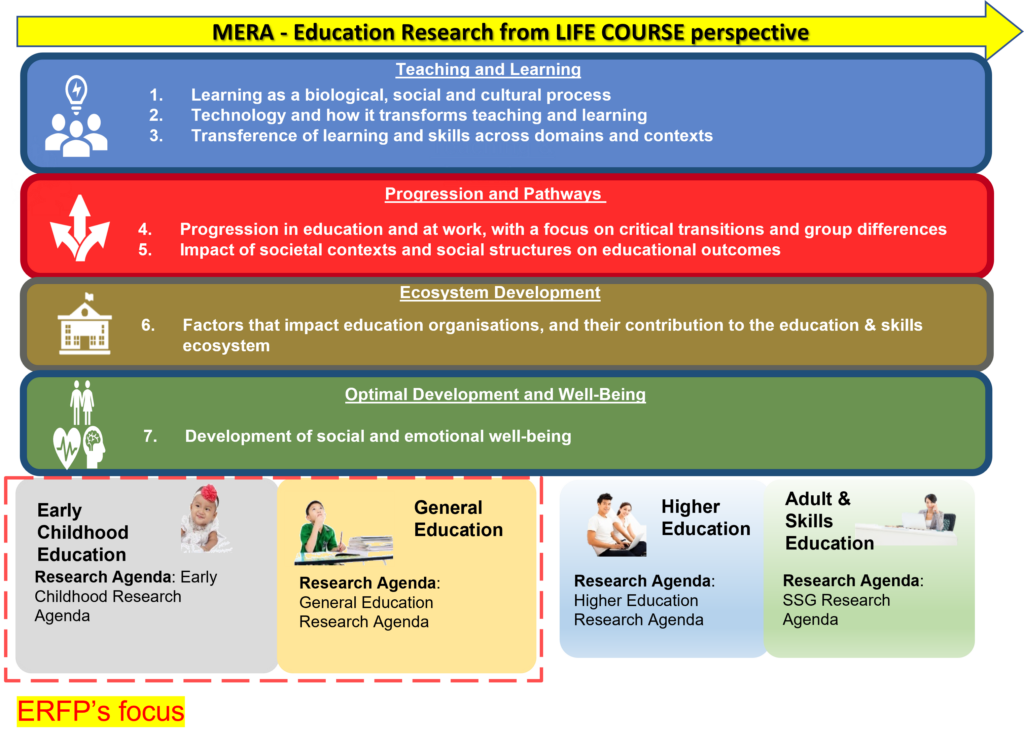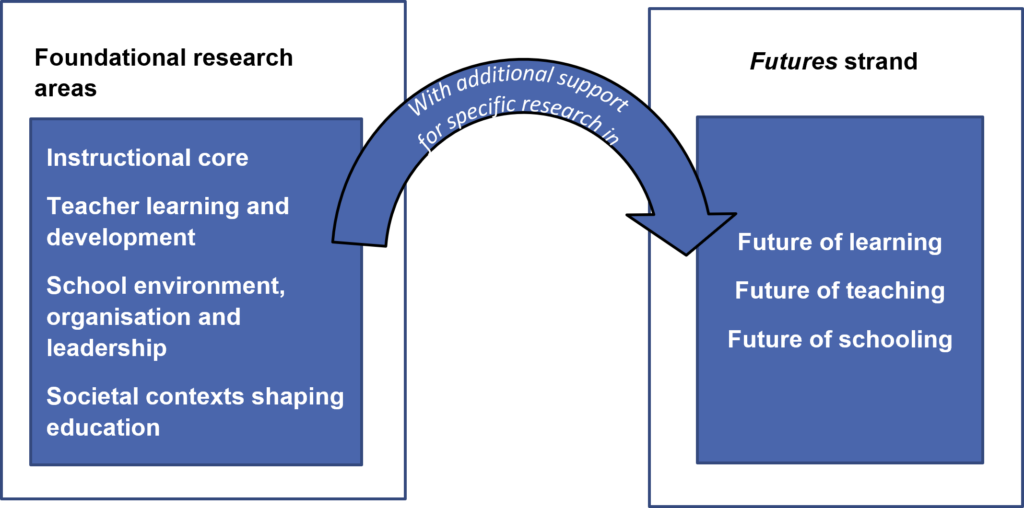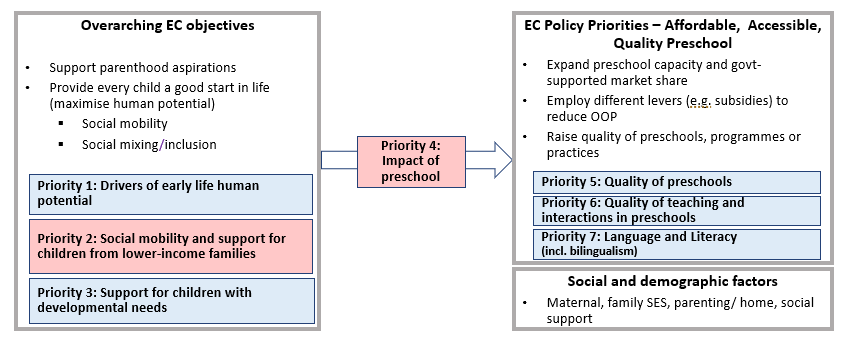
MOE Priorities
MOE-Wide Education Research Agenda
MOE-Wide Education Research Agenda (MERA)
articulates MOE’s high level research priorities to direct research efforts and funding in support of MOE’s strategic priorities for each of the 4 learner groups under MOE’s purview.

General Education Research Agenda
General Education Research Agenda (GERA)
comprises (a) four foundational research areas to strengthen the core of education, and (b) a futures strand relating to critical problems of policy and practice that will support MOE’s research needs over the next 5 years as we shift towards the next bound of education.

Foundational Research Areas in GERA
Research in these 4 areas add to the corpus of knowledge about Singapore’s unique educational contexts needed for the continual improvement of the Singapore education system:
- Instructional core research focuses on the teaching and learning of the subject disciplines, the development of social & emotional competencies and character & citizenship dispositions in Singapore classrooms;
- Teacher learning and development research focuses on how teachers learn, efficacy of teacher professional development and how teacher well-being can be developed;
- School environment, organisation and leadership research is centred on factors and conditions that shape school effectiveness and improvement; and
- Societal contexts shaping education research can examine the broader factors beyond schools, such as cultural and family backgrounds, that impact teaching and learning, and student development.
Future Strands in GERA
This strand supports research specific to critical problems of policy and practice in the future of learning, teaching and schooling, where timely findings can enable improvements in policy, programmes and practice for the next bound of education.
- Future of Learning research focuses on how to equip our students with competencies to learn for life, and qualities to thrive in the future with particular emphasis on developing 21CC and harnessing technology for learning;
- Future of Teaching research focuses on shifts in the roles of teachers and nature of teaching at the broad level, and how teaching and pedagogical practices can support the future of learning at the specific level; and
- Future of Schooling research focuses on how changes in school/class organisation and educational pathways to support the future of learning and teaching can impact student outcomes.
GERA’s Problem of Practice/ Policy are organised into six areas
To help researchers put together proposals that are more useful to MOE, MOE Divisions have articulated problems of policy and practice, accompanied by lines of inquiry, that reflect some of the more pressing gaps for research to address. These problems fall within the following 6 areas.
- Develop impactful curricular and pedagogical interventions (a) in the disciplinary areas, and particularly in the development of 21CC that MOE is emphasising (e.g., inventive thinking, adaptability, resilience); (b) to support student groups that are under-researched (e.g., broad middle band of students and low SES-high ability students)
- Develop assessment literacy, cross-disciplinary learning, and sustaining effective professional development (PD) practice for teachers, with particular emphasis on competencies identified under future of teaching
- Understand and improve pedagogical practices and environmental factors for optimal CCE and socio-emotional development, with particular emphasis on research that will support development of 21CC in these affective areas
- Effective design and deployment of blended learning and AI to optimise learning
- Understanding the impact of educational pathways and related policies on social interaction and mobility, and other longer term outcomes
- Shaping environment (e.g., physical, social, cultural) within school and beyond school to better support students and optimise learning
Early Childhood Research Agenda
Early Childhood Research Agenda (ECRA)
Research priorities in ECRA support the overarching Early Childhood (EC) objectives, inform EC policy priorities and advance the understanding of the social and demographic factors that are associated with EC outcomes. ERFP will support research priorities 2-7.

For more information on MOE research priorities, please refer to the following: